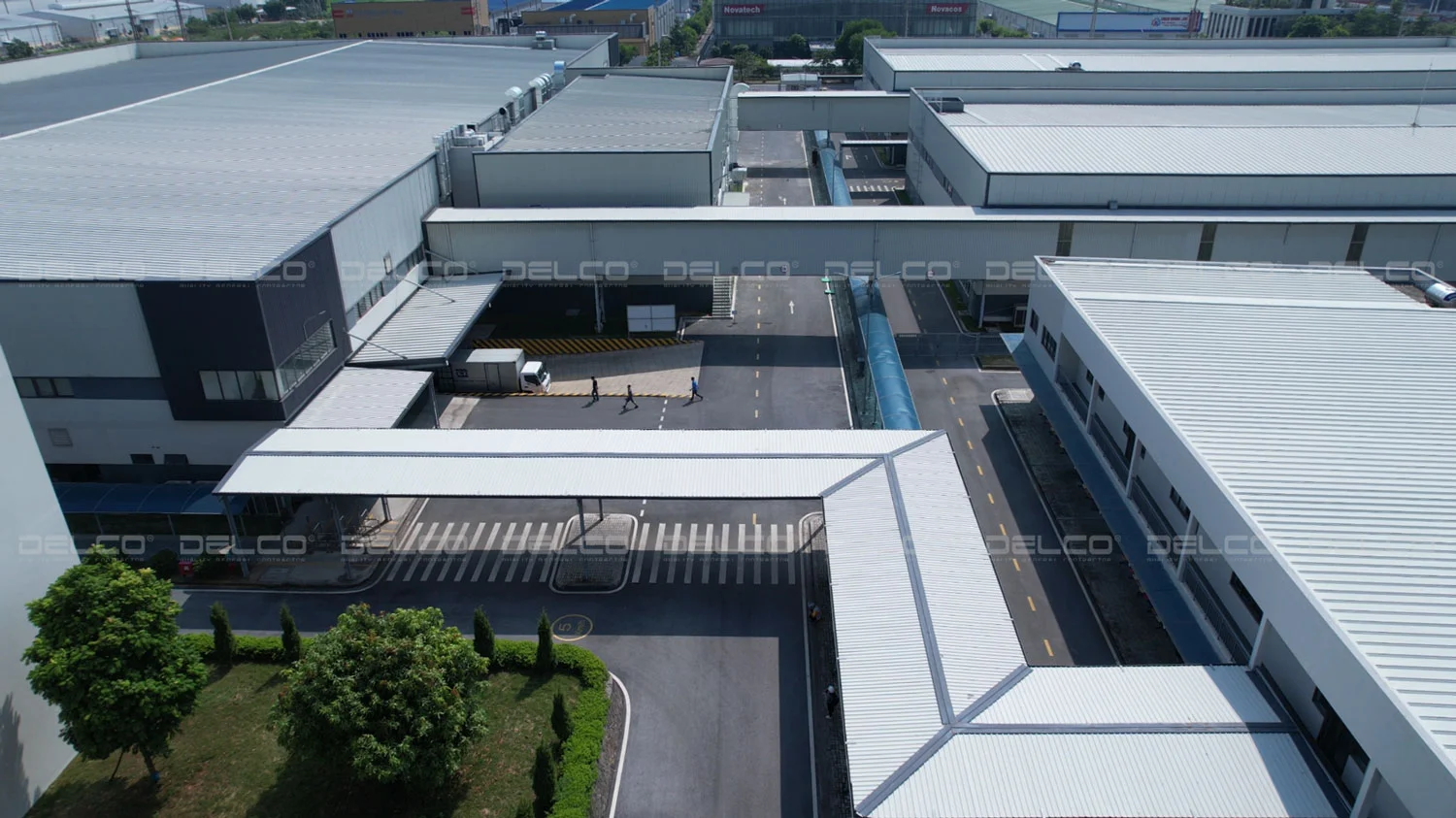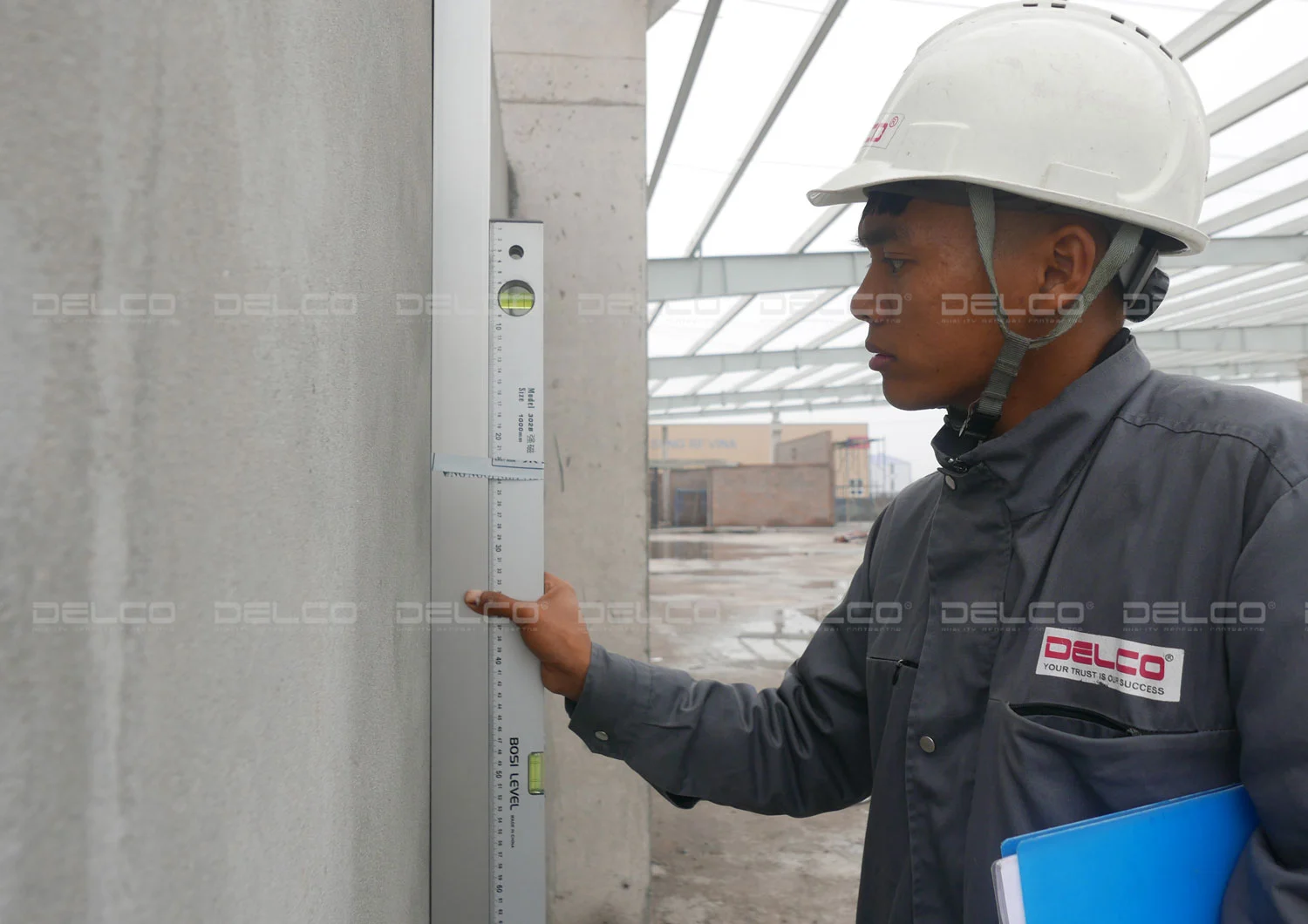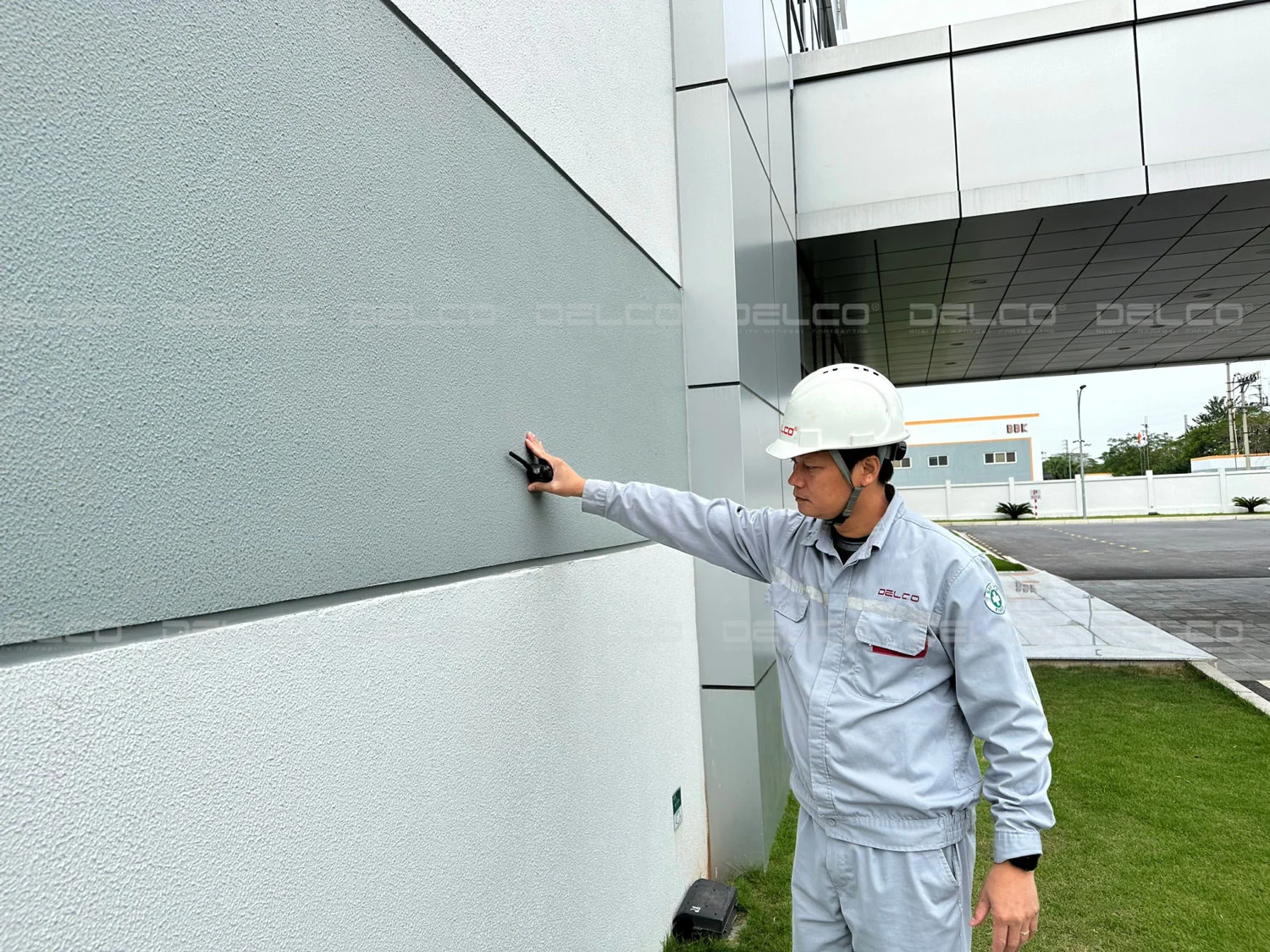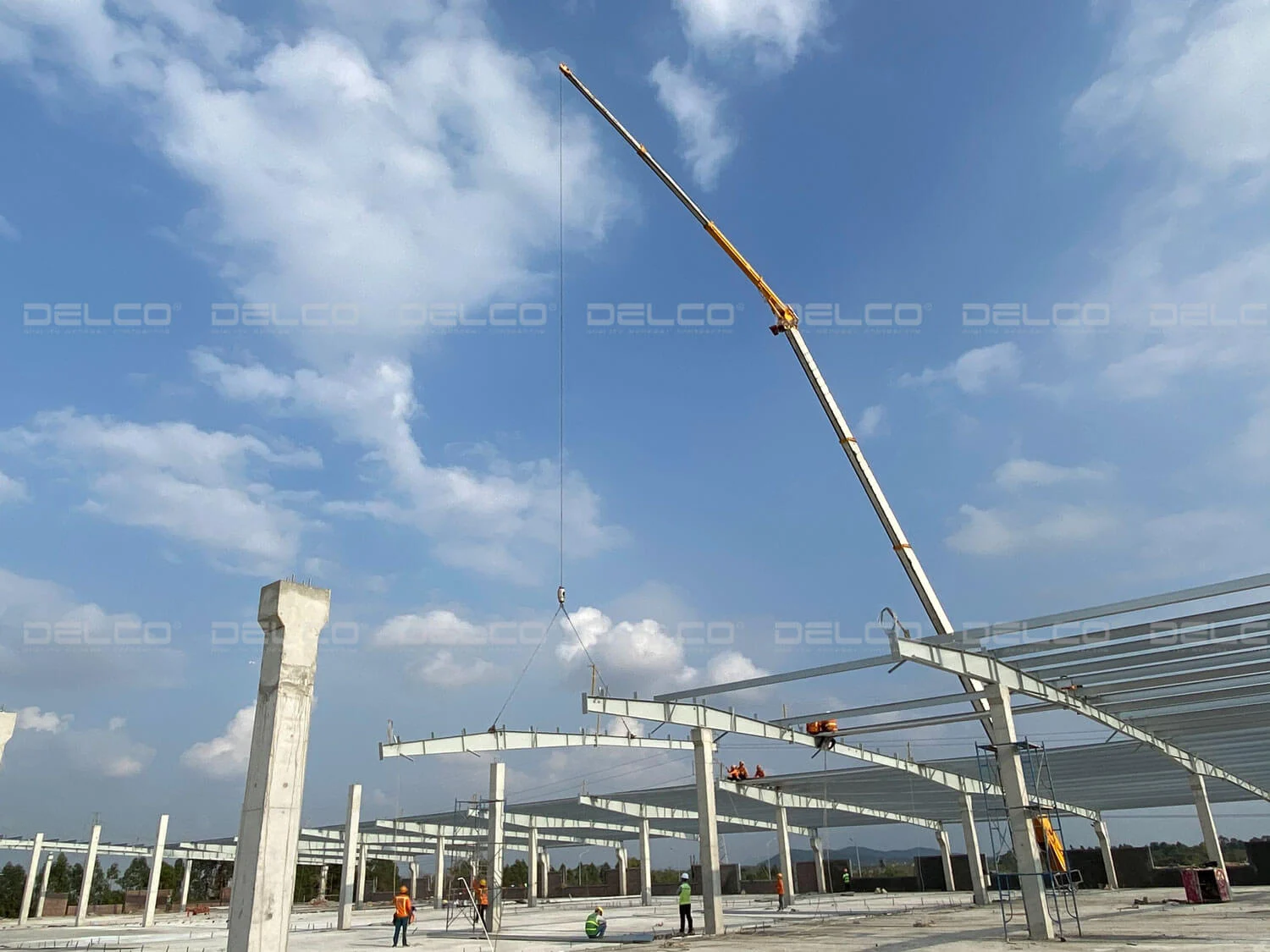A geotechnical survey helps accurately assess geological factors, providing the best structural design and load-bearing solutions for a project, while optimizing costs and construction time for the factory.
What is a geotechnical survey?
A geotechnical survey for a factory involves studying the natural characteristics of the ground where construction is planned. It gathers data on soil structure, the physical and mechanical properties of soil layers, and factors that may affect the foundation of the building. Geotechnical survey standards must be followed to ensure the quality and safety of the project. In areas with complex terrain or weak soil, the survey identifies potential risks like subsidence, erosion, or landslides. This information is crucial for devising safe and effective foundation design and construction solutions.
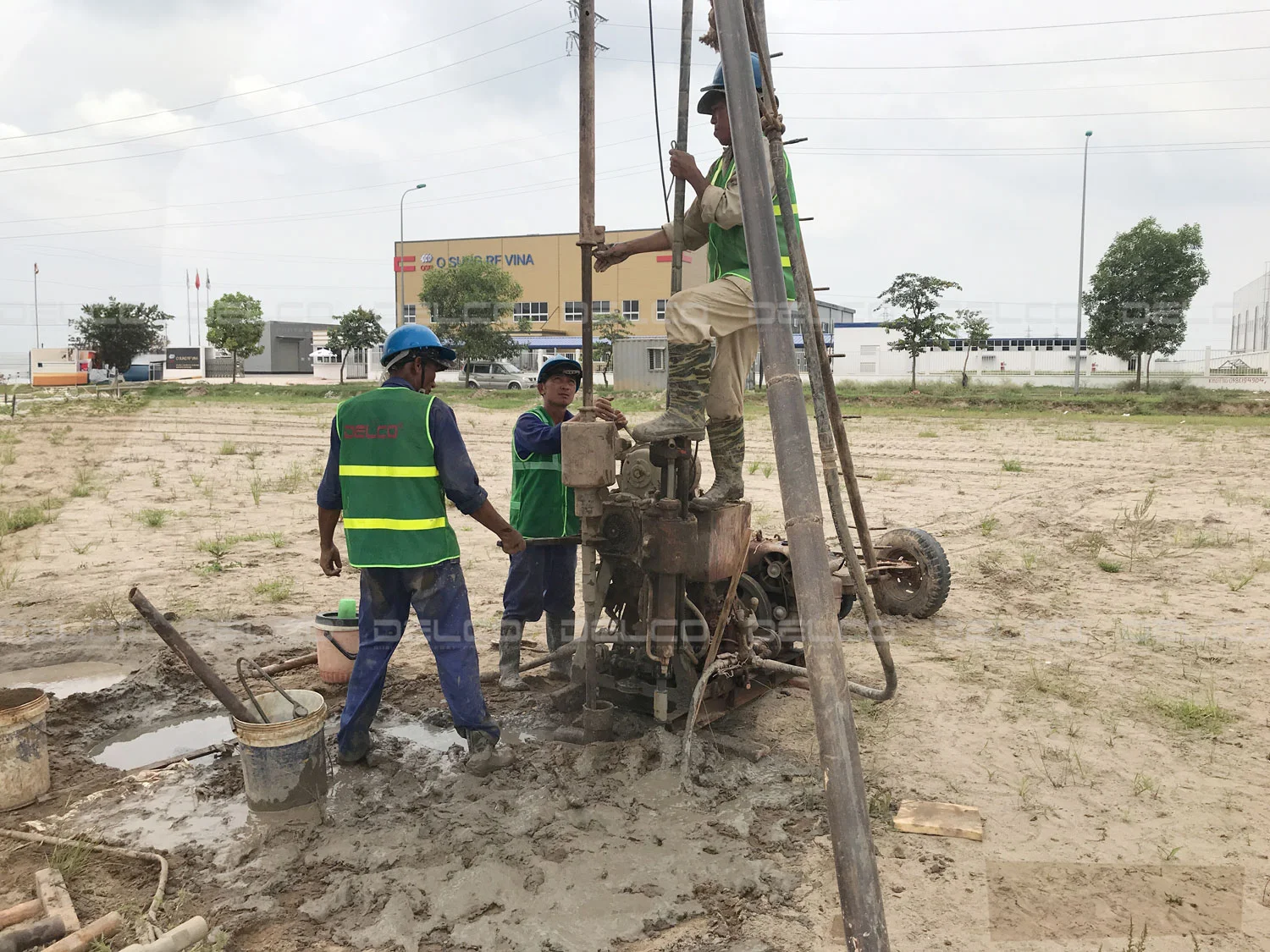
Geotechnical surveys include various stages, such as soil sampling, analyzing soil moisture and porosity, and conducting field and laboratory tests to measure load-bearing capacity. The survey process must adhere to specific standards to ensure quality and safety in the factory’s construction.
Why conduct a geotechnical survey?
Structural design and Load-Bearing solutions
Factories house heavy industrial machinery. A geotechnical survey provides essential information to evaluate soil stability and load-bearing capacity, which aids in developing an appropriate foundation structure and load-bearing solutions for the factory building. Without a geotechnical survey, assumptions about soil strength for foundation design lack a factual basis, leading to inaccurate foundation designs and increased risks for the factory.

For weak soils, such as soft clay or mud prone to subsidence, a deep pile foundation may be chosen to transfer the building’s load to more stable soil layers, combined with ground reinforcement measures. In contrast, for solid, stable soils, shallow or mat foundations can be used, ensuring both safety and cost-effectiveness.
Optimizing foundation construction costs and time
Geotechnical survey results form the basis for accurately calculating the load-bearing capacity of the factory foundation and the pile support over time. This avoids underestimating the load, which could pose risks and incur costly repairs, or overestimating it, which would lead to wasted time and expenses during construction.

Experience shows that projects without geotechnical surveys may face “false load” risks. For example, when piles are driven based on a load gauge, they may meet design requirements initially, but as the soil stabilizes over time, the actual pile load changes, causing tilting and severe subsidence. Additionally, some projects encounter situations where pile driving cannot reach the desired depth due to hard clay layers, leading to wasted resources on excess pile length that must be cut off, wasting both money and time, and leaving foundation safety unaddressed.
Identifying risks and minimizing impact
Through the analysis of soil structure and properties, a geotechnical survey helps identify construction risks for a factory that could impact the geological environment, groundwater sources, and more. It also assesses potential geological changes over time that may affect the factory’s safety and longevity, such as wall cracks, tilting, or ground subsidence. Additionally, a geotechnical survey evaluates the impact of factory construction on nearby infrastructure, enabling suitable renovation or reinforcement measures to protect surrounding buildings.
Which projects require a geotechnical survey?
According to Circular 10/2014/TT-BXD, geotechnical surveys are mandatory for factories, workshops, warehouses, and industrial facilities as part of the construction permit application. The regulations stipulate that, for smaller-scale projects next to existing structures with reliable geotechnical survey data, it may be acceptable to use the nearby data to design the foundation and recheck the soil conditions during construction. However, this approach offers lower reliability.

Furthermore, geotechnical surveys remain necessary for projects involving renovations, additional floors, increased loads, or expanded workshop space. This ensures that the current foundation can support new structural or load-bearing changes in the facility.
When to conduct a geotechnical survey and for how long?
A geotechnical survey should be conducted early in the project, during the process of choosing a location to build a factory, to provide accurate data for the factory’s design and layout. The survey duration depends on the site location, project scale, and the number and depth of boreholes. For small-scale factory projects under one hectare, the survey generally takes 10 to 12 days. Projects covering one to two hectares typically require 12 to 18 days, while those spanning two to five hectares may take 18 to 22 days. Thorough surveying not only ensures accuracy in design but also helps save costs for factory maintenance and repair later.
See also: Procedures for applying for a factory construction permit in an industrial park
See also: Factory construction investment consulting service


